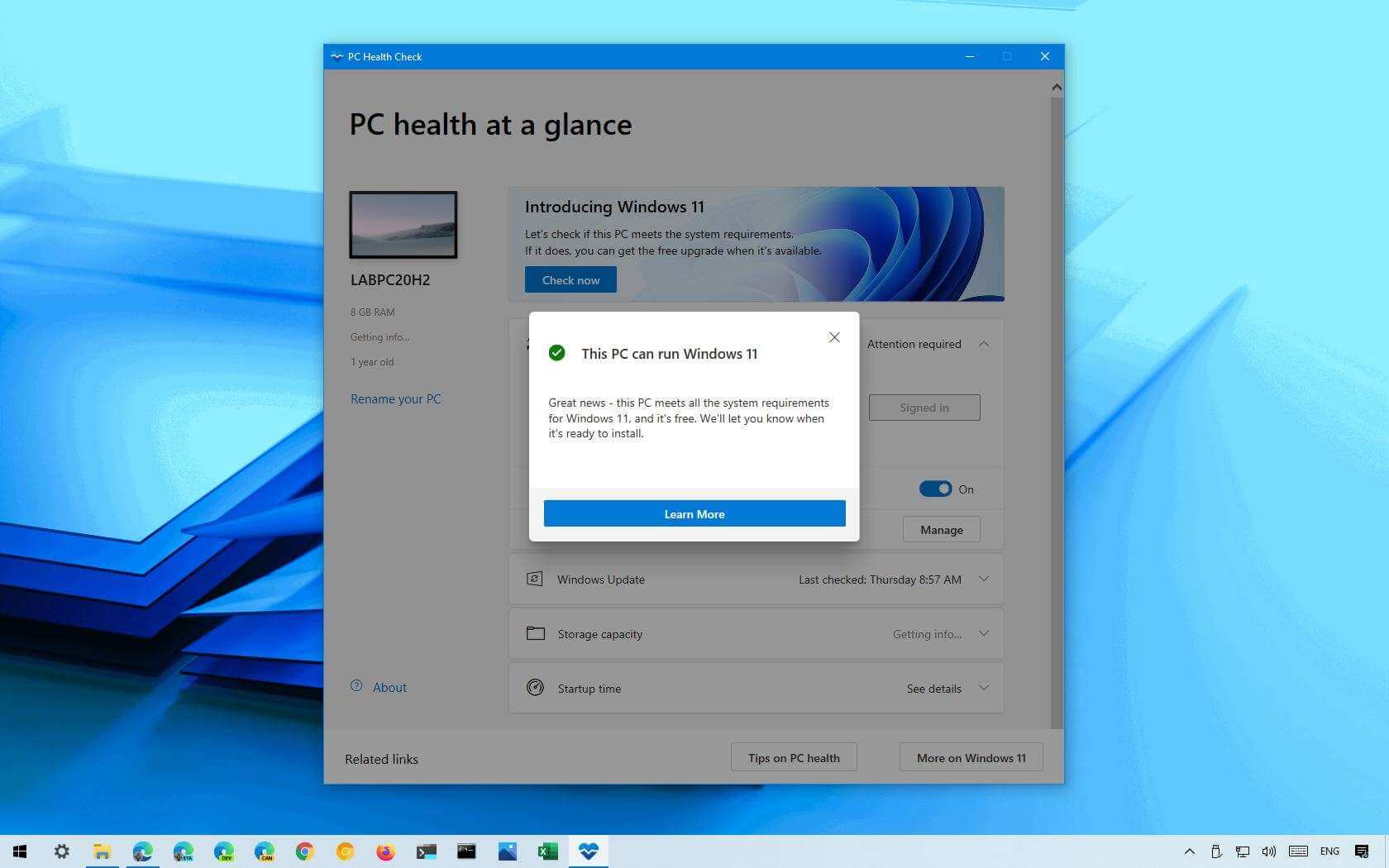In this hands-on video, we’ll go over the new minimum hardware requirements for Windows 11 and demonstrate two methods to see if your computer meets them.
Microsoft is attempting to make Windows more secure this time around, even though the new OS will be available as a free update for current Windows 10 devices. Many consumers will therefore not be able to upgrade their gadgets.
To begin with, Windows 11 need a specialized processor because not all silicon can work with it. An 8th Gen Intel CPU or an AMD equivalent with at least two cores is required under the new standards. These days, computers also require 64GB of storage and at least 4GB of RAM. Lastly, and possibly most controversially, devices will now need Secure Boot and a Trusted Platform Module (TPM) 2.0 chip in order to run the operating system.
In this practical video, we’ll demonstrate how to use the PC Health Check program to rapidly determine whether the hardware configuration of your computer is compatible.
Because of the new revisions’ lack of openness, Microsoft has taken the tool down from its download website as of this writing. Nevertheless, the video also shows you how to determine your computer’s compatibility without a tool.
To find out why Windows 11 might not work on your system, you can also utilize WhyNoWin11, a third-party application that can identify exactly which components are incompatible.



